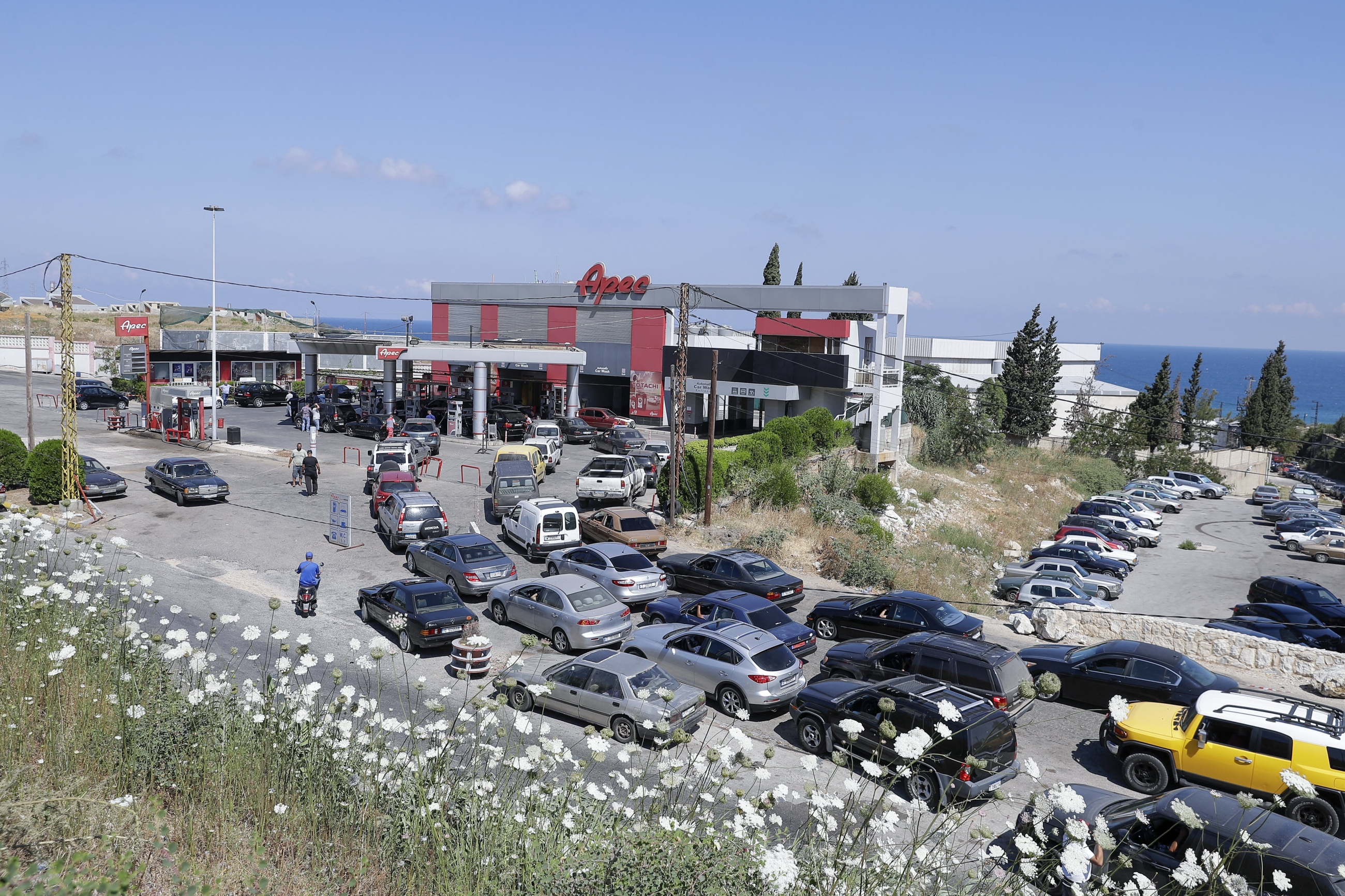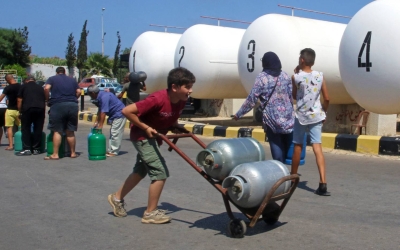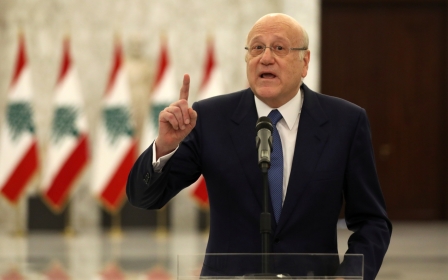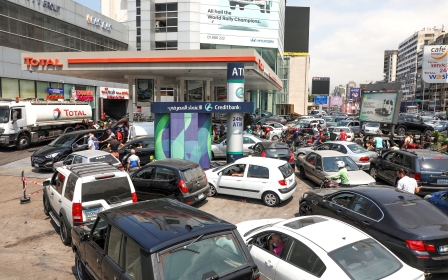Lebanon: Hezbollah chief says first Iranian fuel shipment to arrive this week

Hezbollah chief Hassan Nasrallah said on Monday that the first vessel carrying Iranian fuel for Lebanon had docked in Syria and would arrive in the country later this week.
Nasrallah thanked Syrian authorities for receiving the shipment in their ports and for facilitating its transfer by land into Lebanon, saying it would arrive in Lebanon's Bekaa by Thursday.
"We were told that the arrival of the vessel here [in Lebanon] would harm the country and we don't want to harm the country so we went for another option," Nasrallah said in a televised speech.
He added that a second shipment of Iranian fuel was expected to arrive in the "coming few days".
New MEE newsletter: Jerusalem Dispatch
Sign up to get the latest insights and analysis on Israel-Palestine, alongside Turkey Unpacked and other MEE newsletters
TankerTrackers.com tweeted visual confirmation on Tuesday of an Iranian tanker, which it identified as the FAXON, discharging gasoil in Syria's Baniyas port.
The online oil shipment tracking service said the vessel was discharging 33,000 metric tonnes of fuel and that it would require 1,310 truckloads to deliver it across land to Lebanon.
Last week, the website, which uses satellite imagery to locate tankers across the globe, said the vessel had switched off its automatic tracking systems (ATS) during its journey from Iran, alleging that it had been pretending that it was still in the Islamic Republic.
Dwindling stocks
Fuel and diesel shortages have been the source of tension among residents in cash-strapped Lebanon as they struggle to fill up their cars, and keep the lights on and fridges running at home.
Hospitals, bakeries and other essential facilities have said that dwindling stocks will cause them to shut down.
The arrival of the Iranian tanker comes days after a new government was formed in Lebanon, ending a 13-month deadlock.
Lebanon's new Prime Minister Najib Mikati has not commented on the deal to import fuel from Iran.
Hezbollah's opponents in Lebanon say the purchase risks bringing down sanctions on a country already mired in crisis, especially as Washington has designated Hezbollah as a "terrorist group".
Nasrallah had previously said that Hezbollah would be able to help bring oil from its ally Iran while bypassing the Lebanese central bank in order to avoid violating US sanctions.
The Trump administration announced in 2018 that it aimed to reduce Iran's oil sales to zero after withdrawing from Tehran's 2015 nuclear deal with six global powers.
For its part, the US is backing an effort to address Lebanon's power shortages by bringing in Egyptian gas via Jordan and Syria.
Iraqi oil
Lebanon is grappling with a financial crisis branded by the World Bank as one of the world's worst since the 1850s.
The Lebanese pound has lost more than 90 percent of its value since late 2019 and left four out of five inhabitants below the poverty line.
The crisis deepened when the central bank started removing subsidies in order to shore up its dwindling foreign currency reserves, making the cost of fuel imports more expensive and leading to wide-ranging shortages, with power cuts lasting up to 22 hours a day and fuel for private generators increasingly scarce.
In July, Iraq signed an agreement to provide the Lebanese government with one million tonnes of heavy fuel oil a year in return for goods and services, which Lebanon's caretaker energy minister, Raymond Ghajar, said would be used for electricity generation and would be enough for four months.
Middle East Eye delivers independent and unrivalled coverage and analysis of the Middle East, North Africa and beyond. To learn more about republishing this content and the associated fees, please fill out this form. More about MEE can be found here.





